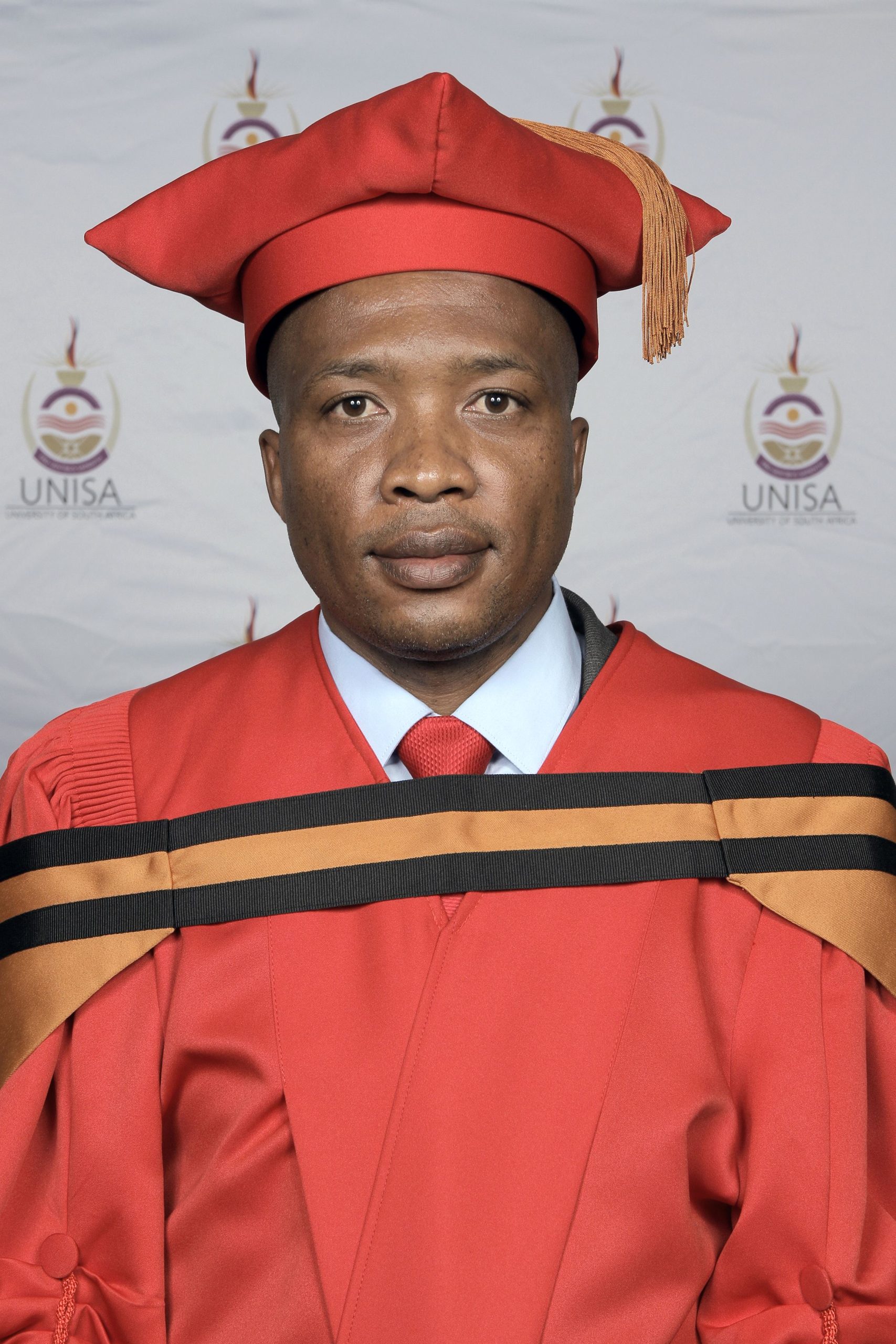Dr Muzi Matfunjwa, Digital Humanities researcher for Siswati at SADiLaR, achieved a huge personal milestone when he graduated with a Doctor of Philosophy in African Languages, Linguistics and Literature from the University of South Africa (Unisa) in October 2022.
Describing himself as a language activist, Matfunjwa believes in the promotion of African languages, especially Siswati, as an official language and an academic discipline.
“I wish to see indigenous languages taken seriously, developed and used in contemporary fields, not merely for communication purposes. The more research conducted in our indigenous languages, the better. Many topics have not been investigated in these languages. It is time for indigenous languages to be included in Human Language Technology to benefit users of the languages.”
Matfunjwa is proud of setting a goal to complete a PhD and achieving it timeously.
“Doing the PhD gave me an opportunity to conduct research on a topic of my interest in the Siswati language, to unearth information and contribute to the body of knowledge.”
However, the journey was not an easy one.
“Studying for a PhD while working full time was very difficult at times,” Matfunjwa recalls. “The main challenge I encountered was inadequate time to do my research. I had to sacrifice all my leisure time and study at night and on weekends. It required good time management, dedication and strong commitment.”
He admits that he also faced academic burnout during his studies. “I was determined, though, to complete my PhD. I did not want to be a failure or contribute to the statistics of PhD dropouts at my institution. These reasons fuelled my energy, focus and adrenaline to persevere with the study.”
Titled ‘A pragmatic exploration of naming practices in Siswati’, Matfunjwa’s doctoral studies investigated how Siswati personal names are given to children at birth, the situations that inform naming, and the ways in which the names are utilised by emaSwati (Swazi people) to express specific messages to intended individuals by utilising speech acts namely commands, requests and interrogatives.
It is the first time this topic was researched in relation to the Siswati language. “From the literature consulted while doing this study, no similar research has been conducted or published that examined personal names as speech acts in the context of the Siswati language,” he comments.
Looking into the future, Matfunjwa says his academic journey has just begun.
“The journey is still long and being conferred the doctorate is only the beginning of it. My future aspiration is to grow in academia and continue to conduct research that is impactful, and to become a National Research Foundation (NRF) rated researcher. I want to establish my name (aka Dr Nkanyiso) in academia, mainly in Siswati linguistics and Digital Humanities as a researcher. The final destination is to become a professor. It is a possible dream, as we know that ‘Mine is to plan and God accomplishes my plans’.
(Written by Birgit Ottermann)

Dr Muzi Matfunjwa, Digital Humanities researcher for Siswati at SADiLaR
